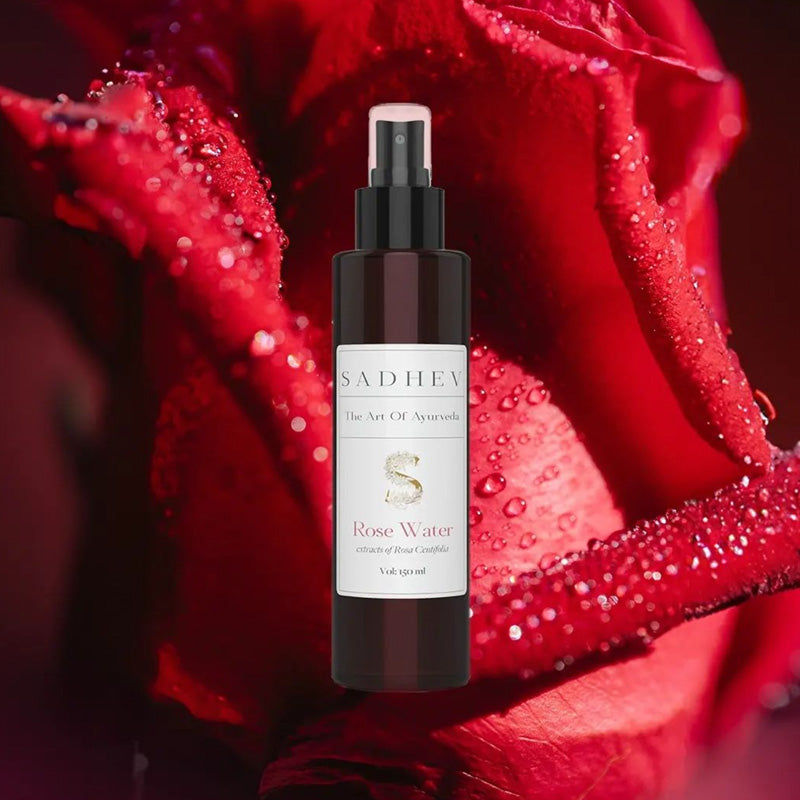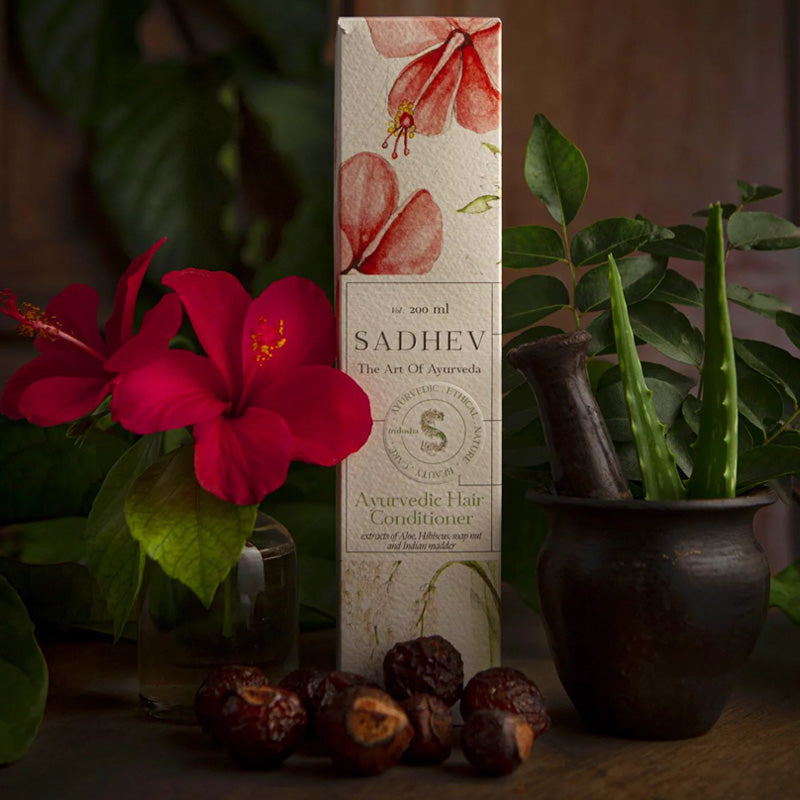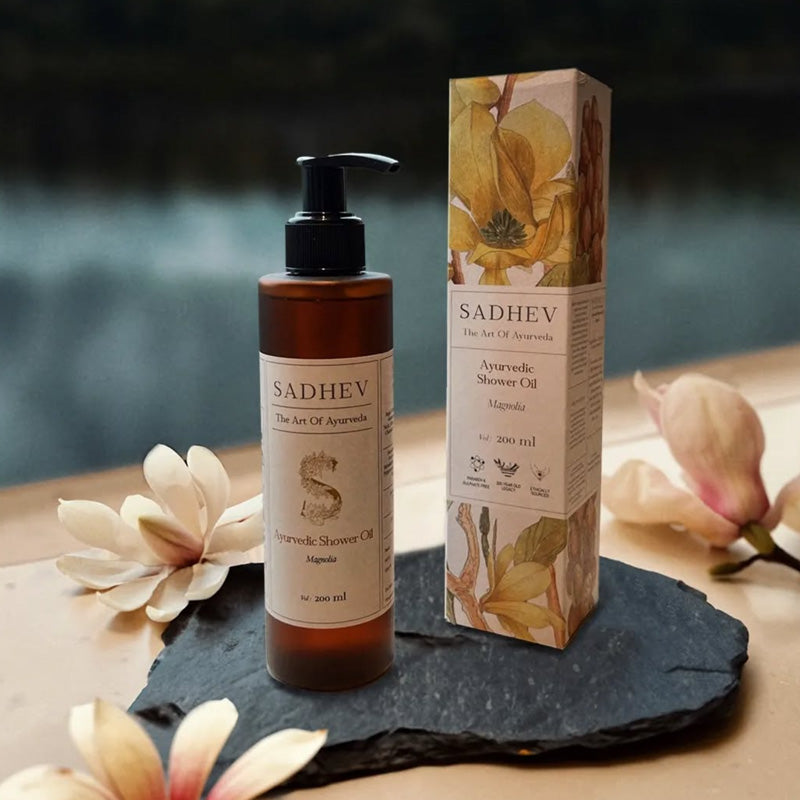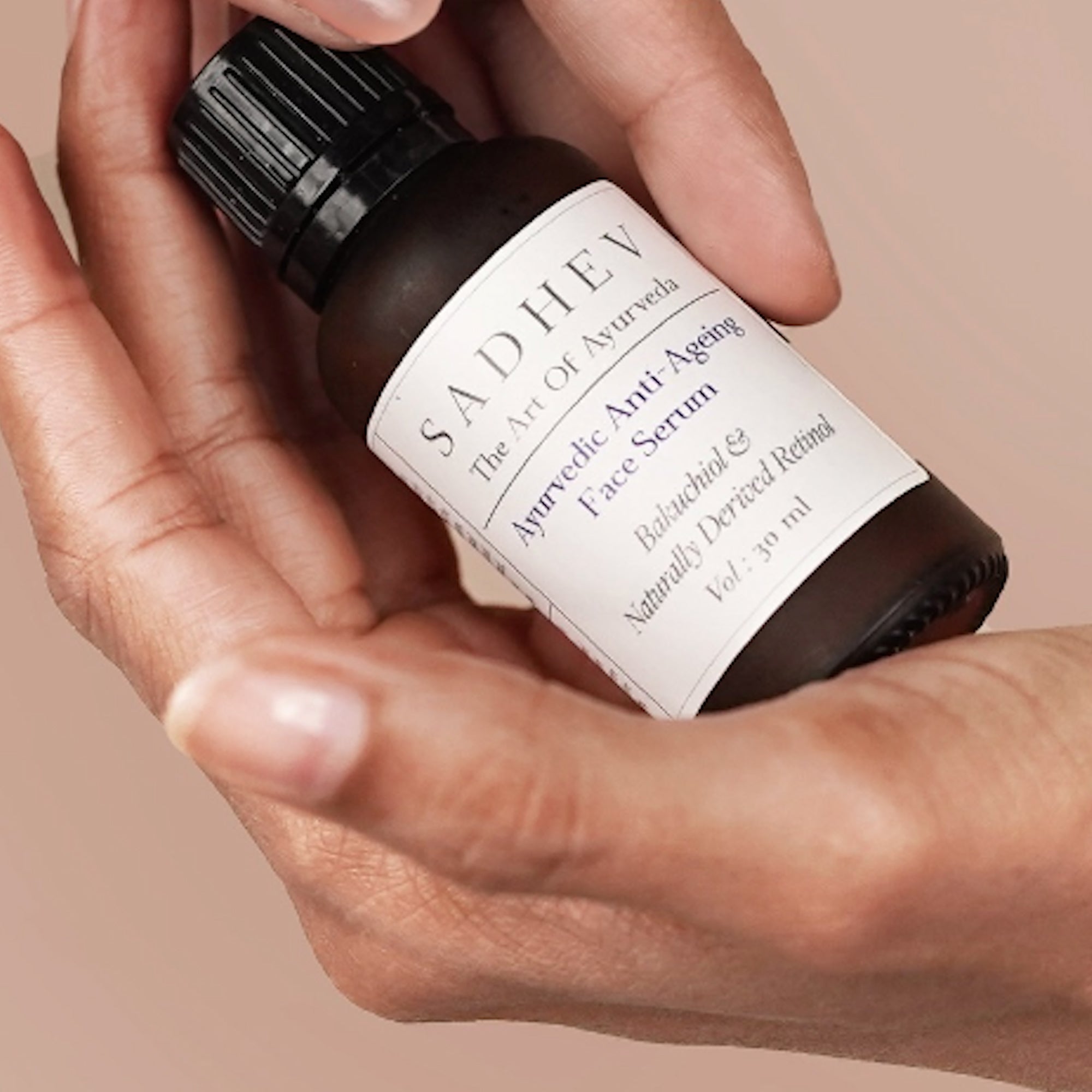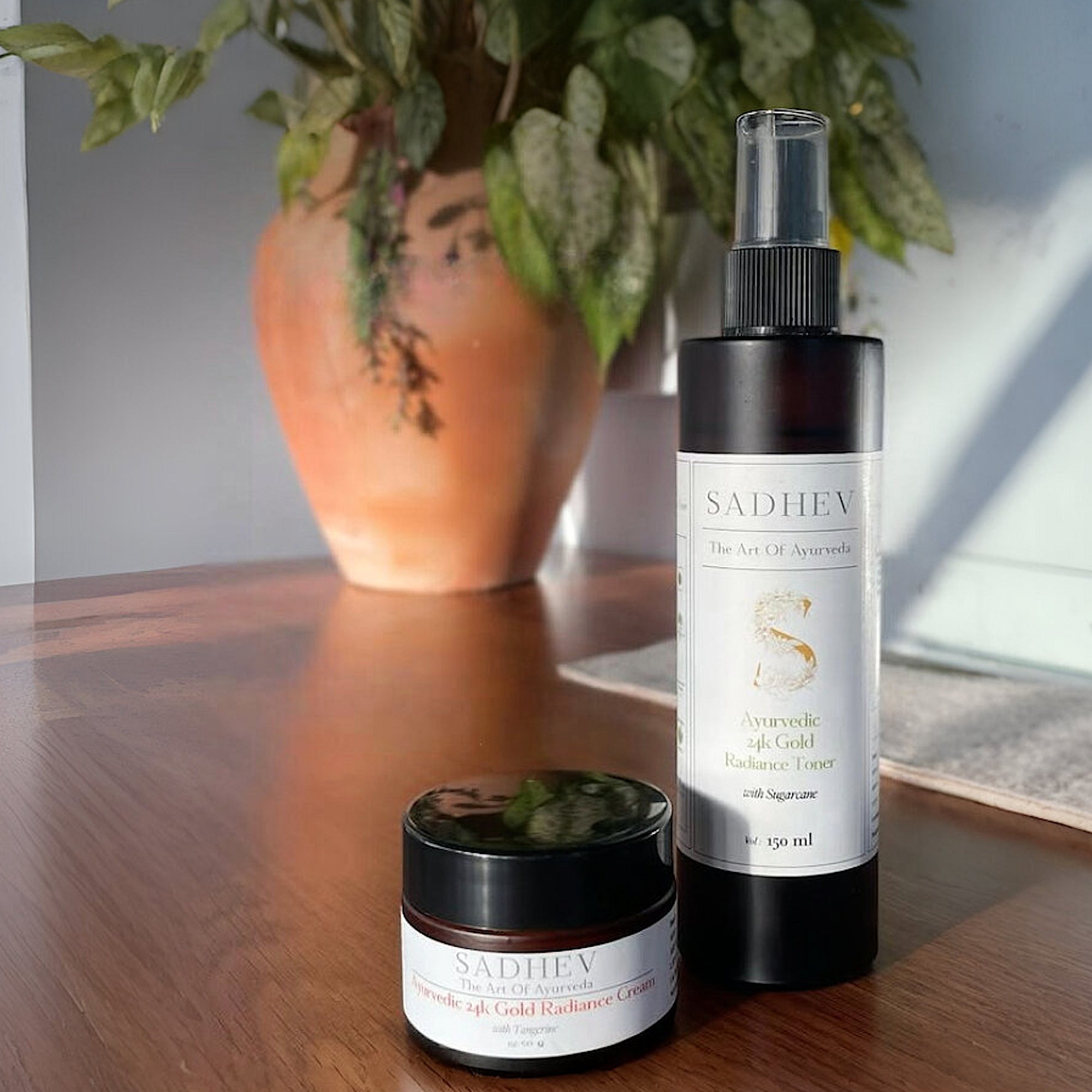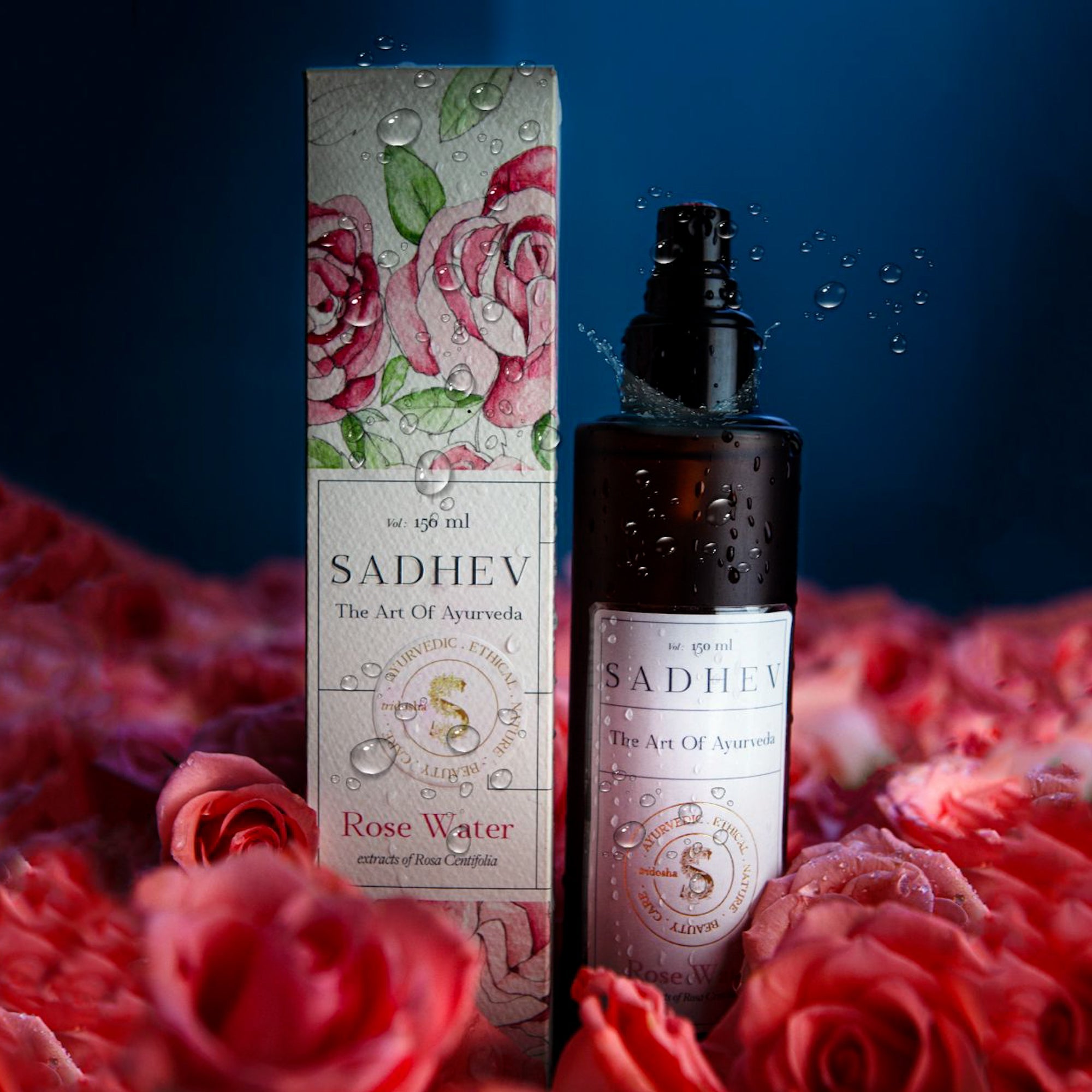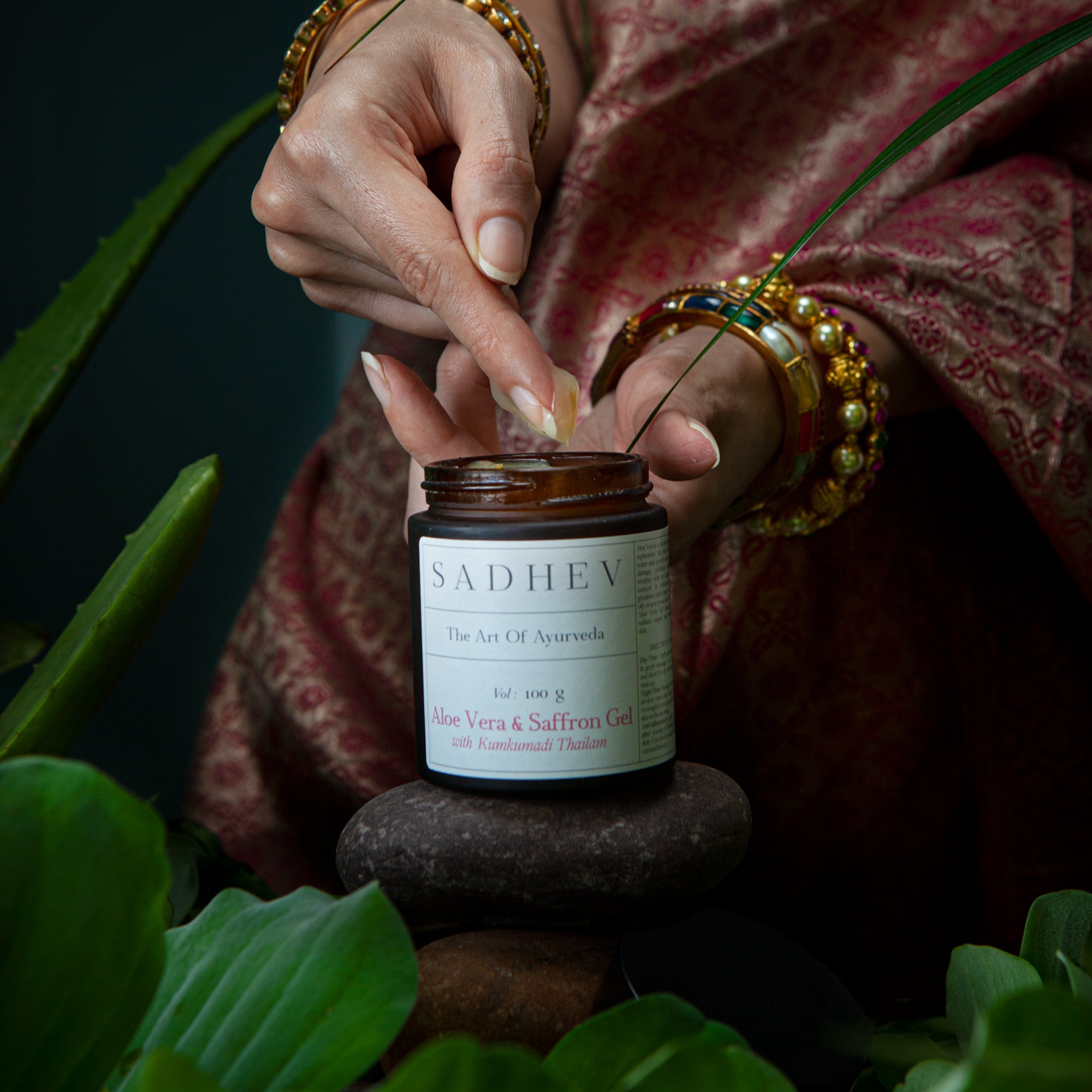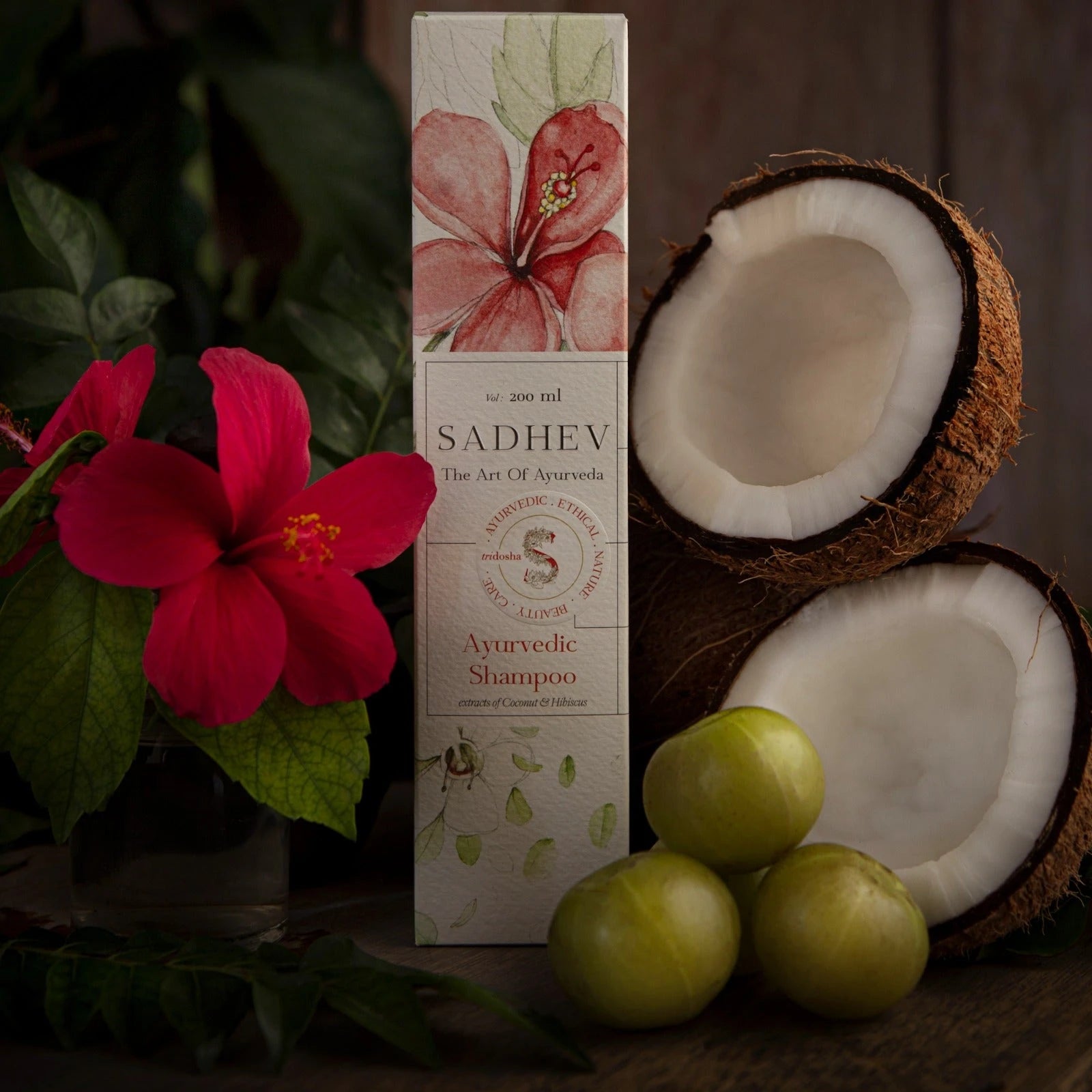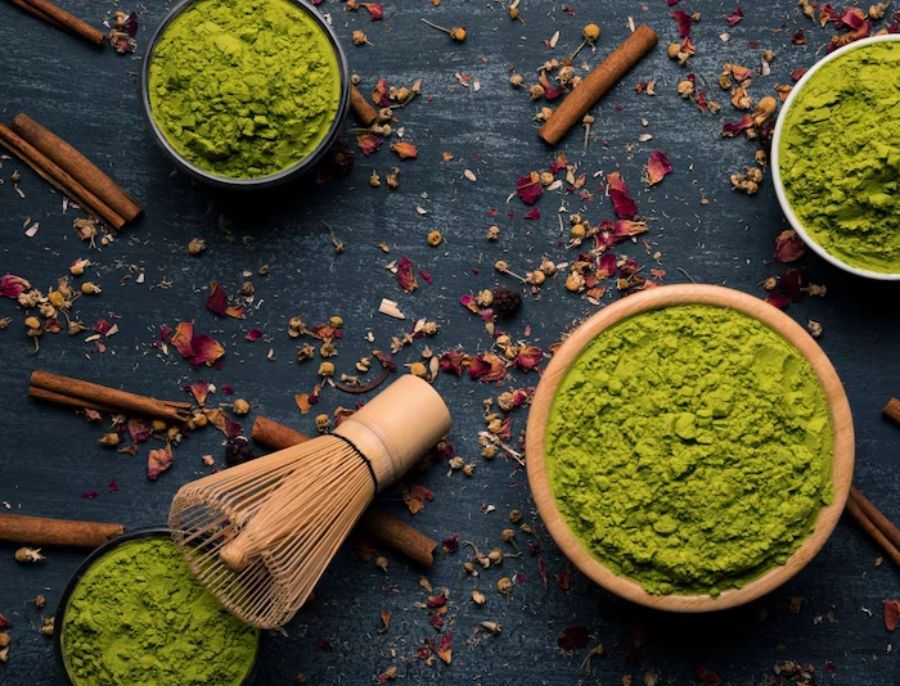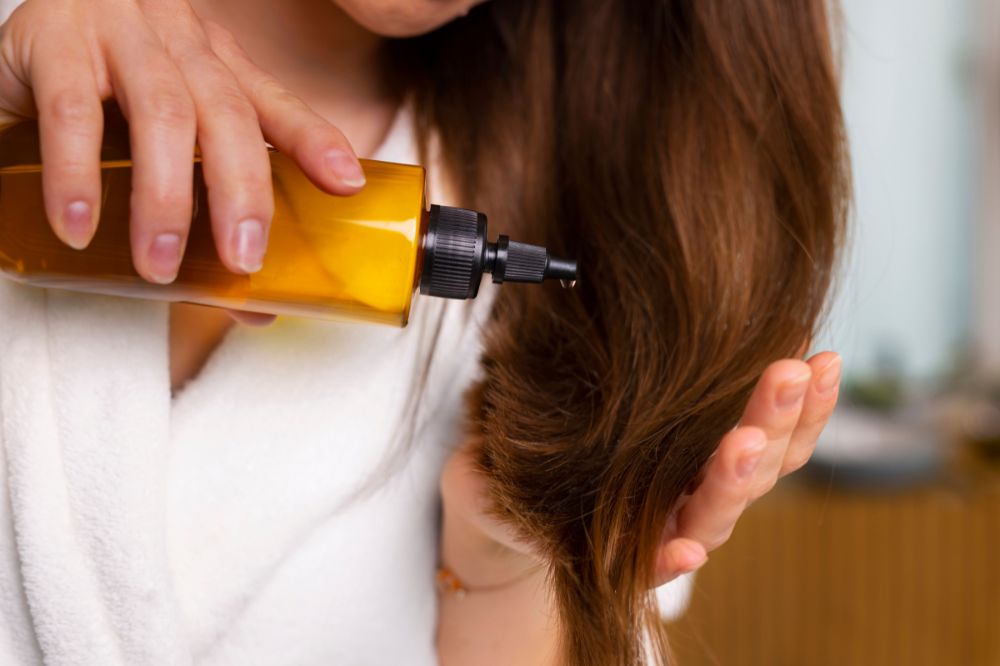In this blog, we’ll take you through what is henna and its various medicinal and hair benefits. Henna is known by various names in this country and is used in numerous ways. Keep on reading to know more about henna leaves benefits.
What Is Henna
Henna known as Lawsonia Inermis in Botanics and Madayantika in Ayurveda is known to soothe the agitated Pitta and Kapha Doshas, (1) due to its cold potency. It tastes Tikta (bitter) and Kashaya (astringent) and has Laghu (light) and Ruksha (dry) properties, according to Ayurveda.
We can find mentions of henna in ancient Ayurvedic texts such as Charaka Samhita which states henna is used to heal various ailments (2). Scholars have also found mentions of henna in Shushruta Samhita where henna leaves are categorised as a pita doshahara medicine. Henna is one of the ingredients in the Mahaneela ghrita, a ghee-based preparation recommended for Eka Kushta or psoriasis, according to the Sushruta Samhita. (3)
Let’s check out some of the most trusted medicinal properties of henna leaves.
Are Henna & Mehendi the Same
If you are wondering what is mehendi, and if it is different from henna, let us enlighten you. Henna and mehendi are often used interchangeably for the same plant and its leaves.
However, the etymology of the name comes from two different cultures. The name mehendi or mehandi finds its roots in the Sanskrit word ‘mendhika’ and is popularly used during ceremonies like weddings and other religious rituals.
Henna on the other hand comes from the Arabic word “al-hinna” which is the name of the plant in their culture. Colloquially this herb is also known as heena, hina or mendhi in different regions of the country
Henna has been used for ages in many cultures for its therapeutic benefits, particularly in traditional medical systems like Ayurveda and Unani (Arabian medicine). Henna is well known for its usage as a natural hair dye and for body art, but it also has abundant health advantages. Let’s check out some of the prominent henna benefits according to Ayurveda:
- Aids In Wound Healing
Due to its antimicrobial properties, henna fights off germs and viruses and helps treat ailments. It aids in preventing microbial growth and hastens the healing process when applied to cuts and wounds. (4)
- Helps In Getting Rid Of Headache
Henna is believed to aid in providing relief from headaches, particularly those that begin in the temple and move to the centre of the head. According to Ayurveda, headaches occur due to Pitta dosha aggravation and henna due to its Sita (cold strength) is said to alleviate Pitta’s headaches. (5)
- Provides Relief From Eczema & Psoriasis
Henna can be applied to the regions affected by eczema or psoriasis to relieve the symptoms. Due to its anti-inflammatory characteristics, many skin disorders accompanying redness, swelling, and itching can be healed. (5)
- Provides Relief From Oxidative Stress
Oxidative stress occurs as a result of an imbalance in the generation of free radicals. It results in hair loss, breakage, damage, and early hair ageing. Antioxidant qualities of henna aid to lessen oxidative stress.
Benefits Of Henna For Hair: Nature’s Secret To Luscious Tresses
In this section let us explore the potential medicinal benefits of henna for your hair. Without any further ado, let’s check out the miraculous benefits of applying henna to hair.
1. Helps Stimulate Hair & Scalp Health
Henna’s usage as a natural hair conditioner and hair colour is its most well-known benefit. Henna leaves support healthy scalp function, strengthen hair, and prevent dandruff. As per Ayurveda, it is believed that frequent application of henna, benefits in transporting vital nutrients to the hair follicles and promotes the growth of new hair by enhancing blood circulation in the scalp.
2. Regulates Oil Secretion
Our sebaceous glands naturally produce oil to moisturise our hair. However, these glands can occasionally generate excessive oil, which can lead to scalp irritation and hair loss owing to both internal and external reasons. The application of henna promotes the unclogging of hair follicles, balances pH levels of the scalp, reduces excess oil from the hair, and controls oil production. This is one of the most well-known benefits of henna for hair.
3. Prevents Premature Greying
Among all the other benefits of henna for hair, its ability to provide a natural reddish-brown tint to your hair makes it a prominent home remedy for covering grey hair. Additionally, henna benefits in delaying the onset of hair ageing.
If you are looking for a natural way to colour your hair, then get your hands on the chemical-free henna hair colour by Sadhev. Our single and double process henna dye is infused with the goodness of henna, indigo and amla. Made with 200-year-old Ayurvedic wisdom, our natural hair colours can help you with gorgeous natural-looking black hair.
4. Prevents Hair Fall
Henna leaves contain phytochemicals like tannins and phenolics that stimulate the growth of hair follicles, lessen the frequency of hair loss, and encourage new hair growth. The application of henna also supports improved scalp health and pH balance, which are essential for reducing hair loss. Rich in proteins, antioxidants, and Vitamin E, henna benefits in guarding against hair damage. Additionally, it aids in repairing split ends, increasing hair elasticity, and avoiding dryness. (6)
5. Cures Dandruff
Henna’s antifungal and antibacterial characteristics aid in battling against dandruff as well as other scalp problems including itching. Additionally, it cleans the scalp of pollutants, which contributes to maintaining the health of the scalp.
There are many products in the market that claim to promote your hair health, but sometimes the most practical fixes can be found in nature’s treasure trove. Henna, a plant-based dye that has been used for millennia to improve the health and appearance of hair, is one such treasure. Its advantages go far beyond just acting as an intricate body art.
Sadhev brings you hair colour infused with the goodness of henna so that you can let your locks shine without feeling guilty about putting in harsh chemicals.
Use our single-process henna colour if you have a lower density of grey and white hair. Thus Ayurvedic hair colour can be used every 10-14 days. However, if you have a higher density of grey and white hair, we recommend using our double-process henna colour once every 20-25 days for the best results.
Enjoy natural-looking healthy tresses with Sadhev’s chemical-free natural hair colours! For safe skin and hair care trust your favourite luxury Ayurveda brand, Sadhev because we formulate safe products that are vegan, paraben-free, sulphate-free and cruelty-free.
Frequently Asked Questions On Benefits Of Applying Henna On Hair
What does henna do to your hair?
Henna is rich in tannins, a plant substance that gives teas their deep colouring. Tannins are also known to prevent premature greying. Vitamin E in henna, aids in softening hair. These miracle leaves are a good source of nutrients and antioxidants that are vital for healthy hair.
What is the best henna to cover grey hair?
You can use Sadhev’s Natural Hair Colour – Double Process to cover large volumes of grey hair.
What to mix in henna for hair growth?
Our henna colour contains amla powder that works towards hair conditioning.
What to add in Mehndi for black hair?
Our natural henna dye contains indigo powder that helps you achieve a natural-looking black hair colour.
What is henna made of?
Henna is derived from the mignonette tree or shrub. The plant’s leaves are used to extract the henna that is used today and grind it into a powder.
Luxury self-care at an irresistible price! Don’t miss out on our ongoing sale. Try out Sadhev’s most-loved products like dandruff shampoo, anti hair fall shampoo, dandruff oil, ayurvedic hair conditioner ,organic hair colour for grey hair etc.




























